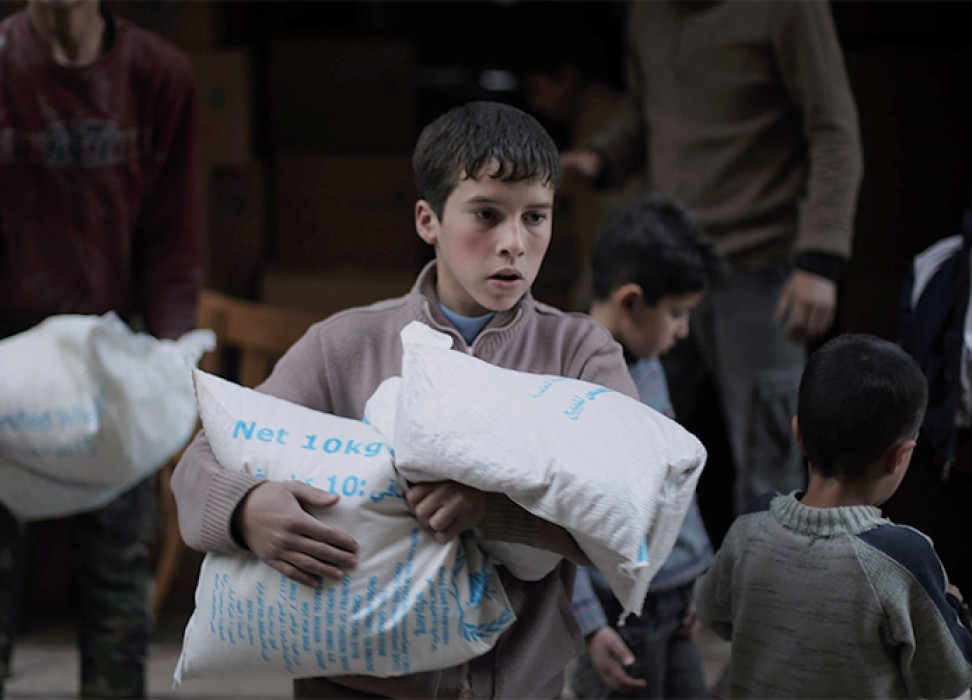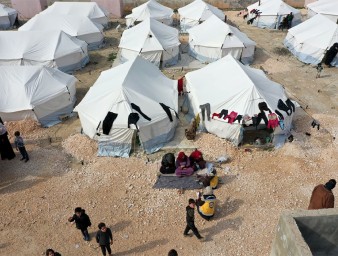Rethinking sanctions that affect the rights of Syrians
26 September 2018

"Despite the efforts to implement "smart" sanctions with humanitarian exemptions, the application of current sanction regimes have contributed to the suffering of the Syrian people," said the UN expert on coercive unilateral measures, Idriss Jazairy.
In his latest report to the Human Rights Council, Jazairy pointed out that although sanctions have not caused the humanitarian crisis in Syria, they contribute to a worsening of the humanitarian situation, contrary to their stated intentions. The Commission of Inquiry on Syria supported his initial findings in their latest report to the Council.
During his visit to Syria in May 2017, Jazairy expressed concern that the regime of sanctions in place has blocked all trade with that country, which has hindered the ability of humanitarian NGOs to carry out their work. Anyone seeking to conduct international business with Syria, he said, must comply with a network of regulators in multiple jurisdictions.
The expert recalled that the UN Human Rights office in a report to the Human Rights Council had advised that the application of sanctions should not be used as tools of political pressure nor deprive people of their basic means of survival. Considering those obligations, EU and US sanctions include provisions that in theory allow for the import of humanitarian goods. However, these provisions, the expert said, have proven difficult for humanitarian actors to use.
"Sanction regimes have all but ensured that aid can only be delivered through the UN or the largest international actors, unnecessarily excluding many humanitarian NGOs, including almost all Syrian-based actors," Jazairy wrote in his report. "It cannot be justified that basic humanitarian needs are denied to the State, only for some to be resupplied through humanitarian aid, according to the priorities of donors and aid agencies."
Because of the absence of a functioning banking system, humanitarian actors have used informal banking alternatives, known of the hawala system, to move cash across borders and throughout Syria. However, smugglers and potentially criminal and terrorism financing channels also use that system. Further, transactions made through the hawala system are difficult to audit, which creates concerns with donors and limits their ability to raise funding.
The complexity of the various sanction regimes has also discouraged banks, exporters, transportation companies and insurance companies to conduct business in Syria.
"While the current sanction regimes contain theoretically useable exception mechanisms, the fact that only the very largest international organizations are able to make use of them after seven years is a testament to the need to reform the system," the expert pointed out.
Jazairy called upon States to take action to ensure that legal humanitarian exemptions, especially for medicines, food and basic infrastructure be made effective in Syria.
"I recommend the creation of a UN-led procurement office, which would coordinate compliance with all sanctioning countries," he said. "Through such an office, the "chilling effect" would be eliminated as banks, exporters, logistics and insurance companies could be certain that their transactions comply with all UCM regimes."
Jazairy also called upon States to identify priority humanitarian and human rights needs of the Syrian people that should be processed by a UN procurement office.
"As a priority, goods and services related to the provision of shelter, water and sanitation, education, health and electricity should be identified," he said.
The most severe sanctions stem from the European Union and the United States trade restrictions, financial sanctions, and arms embargo, as well as travel restrictions and asset freezes on individuals in Syria.
Other countries such as Australia, Canada, Japan, Norway, Switzerland, Turkey, the United Kingdom and the Arab League have applied financial sanctions, as well as asset freezes, travel restrictions and arms embargoes on Syria.
Video




